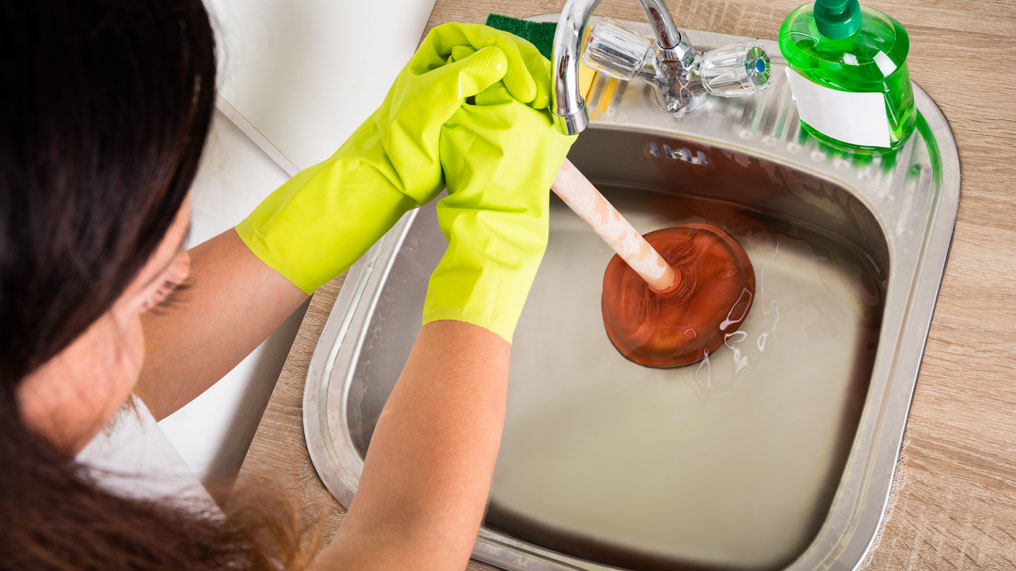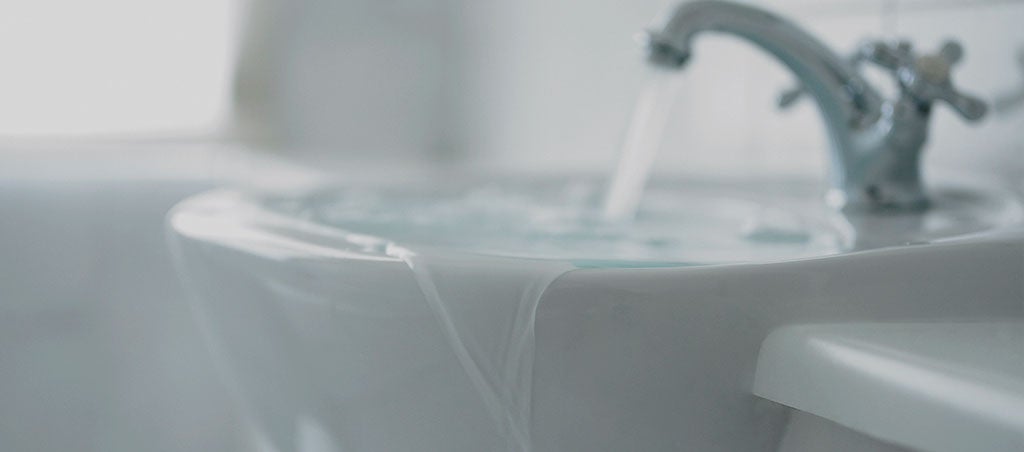Approaches for Handling a Blocked Drain Before Calling Expert Help
Approaches for Handling a Blocked Drain Before Calling Expert Help
Blog Article
The article down below on the subject of Tips for Dealing with Clogged Drains and Sewer Lines is definitely remarkable. You should check this stuff out.

Introduction
Dealing with an obstructed drainpipe can be an aggravating experience, interfering with daily activities and potentially causing damage to your property. However, before reaching out to plumbing professionals, there are actions you can require to address the concern yourself. In this overview, we'll explore do it yourself services and preventive measures to tackle an obstructed drainpipe properly.
Recognizing the Concern
The first step in addressing a blocked drain is identifying the indications. Slow-moving drain, gurgling noises, foul odors emanating from drains, or water backing up are common indicators of an obstructed drainpipe. Determining these signs early can help protect against further issues.
Typical Causes of Blocked Drains
Understanding the aspects that contribute to drain pipes blockages is crucial for efficient resolution. Typical culprits include hair, soap scum, oil, food debris, and foreign items like hygienic items or paper towels. Tree roots invading underground pipes can also create considerable obstructions.
Do it yourself Solutions
For small blockages, several DIY remedies can be reliable. Pouring boiling water down the drain can aid dissolve grease and debris. Sodium bicarbonate and vinegar or a blend of salt and baking soft drink can function as all-natural cleansers. Utilizing a bettor or pipes snake to dislodge blockages is an additional choice.
Tools and Equipment
Having the right devices on hand can make do it yourself drainpipe cleaning a lot more effective. A bettor is a flexible tool for removing blockages in sinks, bathrooms, and showers. A pipes serpent or auger can reach deeper clogs, while drainpipe cleaning chemicals can be used cautiously for persistent clogs.
Preventive Measures
To prevent future clogs, embracing safety nets is essential. Mount drain guards or strainers to catch hair and debris before they enter the pipelines. Routinely flush drains pipes with warm water to dissolve oil accumulation, and stay clear of disposing of grease or solid waste down the tubes.
When to Call an Expert
While do it yourself solutions can solve small clogs, specific indicators show the requirement for professional support. Persistent blockages, foul odors regardless of cleaning efforts, or multiple drains pipes backing up at the same time are red flags that necessitate professional intervention.
Selecting the Right Plumbing Solution
When picking a plumbing service, consider variables such as experience, licensing, and consumer testimonials. Pick a trustworthy plumbing technician with a performance history of quality craftsmanship and transparent rates practices.
Cost Factors to consider
The expense of professional drainpipe cleaning company can vary relying on the intensity of the obstruction and the plumbing's prices. Demand quotes from several suppliers and ask about any type of added fees to make certain openness and stay clear of surprises.
Security Precautions
When attempting do it yourself drain cleansing, prioritize security. Use protective handwear covers and eyewear to stay clear of contact with unsafe chemicals or microorganisms. Never mix different drain cleansing items, as this can create unsafe fumes.
Situation Studies
Real-life examples illustrate the efficiency of do it yourself options and the importance of timely expert intervention in settling drain blockages.
Final thought
By adhering to the pointers outlined in this overview, you can properly take on obstructed drains and protect against future pipes issues. Whether going with do it yourself services or looking for expert support, prompt activity is essential to keeping a healthy pipes system and preserving the stability of your home.
How to Clear a Clogged Drain Yourself (And When to Call In the Professionals)
What Can Clog a Drain
Dirt Skin flakes Hair Grease Soap scum Food Offset pipes Tree roots Small objects Mineral buildup DIY Tricks to Unclog a Drain
You can fix this! Once you have identified the source of the clog (or have a vague idea), you can try one or a combination of these fixes in order to clear your plumbing.
Wire Hanger or Snake
Untangle and clear out hair from a drainpipe with a homemade snake. Use a straightened-out wire hanger with a 90-degree angle hook to locate the clog and drag out any unwanted material.
Remember not to push the clog further down to where the wire hanger cannot reach! If you need to follow up with a plunger, give it a try. Your efforts might be more successful after it’s been wire-snaked.
If you want to get fancy and don’t have a wire hanger to spare, head to the store and pick up a hand-operated drain snake. You can get one for $10-$30. It may save you the hassle, and provide additional length to reach deep into the clogged pipe.
Plunger
A cup plunger has a suction cup attached to a wooden handle. The rubber creates a seal around the drain, and increases the pressure force of the plunger.
Plunge for 30-second increments to loosen the clog. This may need to be repeated over the course of 15-20 minutes. Once plunged, run the water to flush the remaining material out of the drain.
Remember– never use a plunger if you have used a chemical drain cleaner. These chemicals can splash up from the force of the plunger and cause serious injury or burns.
Boiling Water
Hot water can sometimes break up materials into a flushable amount. Dirt, grease, and soap buildup requires heat in order to unstick from surfaces.
Take your kitchen kettle and heat your water to a boil. Once it reaches a rolling boil, pour it directly down the drain into the blockage. Carefully follow with plunging, if necessary.
Don’t worry if this takes more than one try! It can often take multiple kettles and repeated plunging in order to clear a particularly stubborn clog.
Chemical Drain Cleaner
As a last resort, pick up a bottle of chemical drain cleaner. Drain-cleaning chemicals are potent, and not very good for the environment.
You may need to wear protective eyewear in gloves before handling your bottle of chemical drain cleaner. Follow the instructions printed on the bottle, and flush with water as soon as the instructions allow. Do not follow with plunging.
Baking Soda and Vinegar
As a safer alternative to chemical drain cleaner, baking soda and vinegar can create a chemical reaction that clears tough clogs.
Combine one cup of cleaning vinegar with one cup of boiling water, and set aside. Once you have done this, pour half a cup of baking soda down the drain. Give the baking thirty seconds to settle and cover a large portion of the problem drain.
Following the baking soda, pour down your vinegar and hot water solution. Once the vinegar and baking soda combine, the mixture will bubble and fix. Let this reaction fizzle in the drain for about an hour.
After an hour, follow with a kettle’s worth of hot water. The heat and liquid should flush out any remaining material.
When to Call a Plumber
If your DIY attempts haven’t cleared your clog drain, it’s time to call in a professional. It’s not worth losing access to your kitchen sink or high-traffic bathroom. A clog in a vital area can keep you from the things you’d rather be doing, and derail your routine.
Anytime a clog is causing water to spread is a time to call in a plumbing service. What starts out as a little bit of water can quickly grow into serious, expensive water damage.
Additionally, a serious clog can result in burst pipes or serious leaks. Make sure you know when to take it seriously!
https://myguysnow.com/how-to-clear-a-clogged-drain-yourself-and-when-to-call-in-the-professionals/

We hope you enjoyed our topic on Tips for Dealing with Clogged Drains and Sewer Lines. Thank you so much for finding the time to read our post. Appreciated our write-up? Please share it. Let someone else find it. Bless you for your time. Revisit us soon.
Details Here Report this page